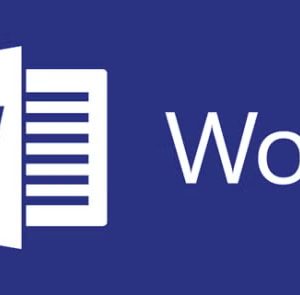Description
There are three parts to this assignment:
- Exploration of online, open-source sustainability-related data– nothing to hand in for this part.
- Exploration of online tools for tracking and monitoring progress towards sustainability goals– there is nothing to hand in for this part, either.
III. Questions about the challenges of knowledge-sharing for sustainability – written responses to the questions.
This assignment is due on Friday, November 1, 2019 before 11:59 pm (end of day). The assignment is worth 15% of your course mark. The assignment should be completed in full-sentence prose, and the total length will be approximately 3-4 pages in length (single-spaced, 1500-2000 words of text). Completing the first two parts of the assignment will give you some background on which to base your answers for the questions in the final part.
You shouldn’t need to do any additional outside research, beyond the explorations and resources provided in the assignment. The questions are meant to provide an opportunity for you to offer your thoughts and demonstrate your understanding, rather than looking for answers somewhere else. However – as always – if you do use information, ideas, or examples from other sources, they must be properly cited and referenced; please use APA Style.
Please download and read the full assignment for detailed information and instructions: Assignment #2: Sustainability Data Exploration
Additional Resources:
Here are the marking guidelines that we will follow while reading your submissions: Assignment #2 marking guidelines
Here are links to the recommended readings for the first two parts of the assignment:
World Bank Group (2015) Open Data for Sustainable Development. Policy Statement ICT01
Sachs, J., Schmidt-Traub, G., Kroll, C., Lafortune, G., Fuller, G. (2019): Sustainable Development Report 2019. New York: Bertelsmann Stiftung and Sustainable Development Solutions Network (SDSN)
Please refer to Writing Resources for additional writing-related help and suggestions, including information about APA-style referencing and citations.
I have posted a video “walk-through” for each of the assignments: Assignment Walk-Through. Everything covered in the videos is in the downloadable assignments. If you would rather just read through the assignments, then you don’t need to watch these videos.
Now that you have explored the online data and tracking tools, answer the following five questions
about the challenges of data- and knowledge-sharing and monitoring of progress towards sustainability.
Your answers should be in full-sentence prose, using examples from the online data explorations in
Parts I and II of the assignment. Length suggestions are given below for each question
It shouldn’t be necessary to do any outside research, aside from doing the online guided explorations
and reading the suggested resources. However, as always, if you do use outside sources they should be
properly cited and referenced, in APA style. If you reference any ideas or information from the
suggested readings, they also should be cited. You don’t need to repeatedly cite the websites that are
the main focus of the online explorations; we will assume that your examples and screen shots have
come from the two websites if you don’t cite a different source (https://sdghelpdesk.unescap.org/ and
https://dashboards.sdgindex.org/#/).
When your answers are ready, go to Assignment #2 on our Quercus site and upload the file in .doc,
.docx, or .pdf format.
Q1. What do you think are some of the strengths and weaknesses of the SDG Help Desk that you
explored in Part I of the assignment (https://sdghelpdesk.unescap.org/)?
Notes: A half-page (250-300 words) would probably be appropriate for the answer to this question.
Please use specific examples from your exploration of the SDG Help Desk in your answer.
Q2. In the context of working towards the Sustainable Development Goals, what do you think is the role
or importance of open data, technology transfer, and knowledge-sharing among the countries of
the world? What do you think might be the biggest challenges involved in sharing data, knowledge,
and technologies openly among people in different countries and regions?
Notes: One page (500-600 words) would probably be appropriate for the answer to this question.
Make sure that you know what “open data” means. This is meant to be your opportunity to reflect
on this topic, rather than just searching for answers in other sources.
Q3. What do you think are some of the strengths and weaknesses of the SDG Dashboard that you
explored in Part II of the assignment (https://dashboards.sdgindex.org/#/)?
Notes: A half-page (250-300 words) would probably be appropriate for the answer to this question.
Please use specific examples from your exploration of the SDG Help Desk in your answer.
Q4. Do you think it is important that we, as a global community, track and report on the progress of
countries towards the SDG indicators? Why (or why not)? Are there pros and cons of tracking and
reporting on the progress of nations?
Notes: One page (500-600 words) would probably be appropriate for the answer to this question.
This is meant to be your opportunity to reflect on this topic, rather than just searching for answers
in other sources.
Q5. Comment on Canada’s performance in the SDG indicators that you explored in Part II of the
assignment. Was Canada’s performance in any of the indicators surprising to you? Why (or why
not)? Provide and briefly discuss a couple of examples from your exploration of the SDG Dashboard.
Notes: A half-page (250-300 words) would probably be appropriate for the answer to this question.
This is meant to be your opportunity to reflect on your findings, rather than just searching for


Reviews
There are no reviews yet.